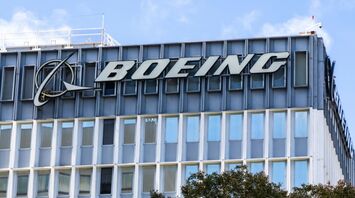Families Ask DOJ to Fine Boeing $24.78 Billion for "Deadliest Corporate Crime in US History"

The families of the victims of two fatal Boeing 737 MAX crashes, which resulted in the deaths of 346 people, have requested the Department of Justice (DOJ) to impose a $24.7 billion fine on Boeing. They claim that the manufacturer committed the "deadliest corporate crime in US history."
The proposed fine, detailed in a letter sent to the DOJ by Paul Cassell, counsel for 15 families, is based on the $12.3 billion in losses caused by Boeing’s actions. However, the fine could be partially suspended if the funds are invested in improving Boeing's quality control and safety measures.
Cassell emphasized the families' belief in aggressive criminal prosecution of Boeing and requested the DOJ to set a jury trial date within 70 days of July 7, 2024, citing the Speedy Trial Act. He stated that no plea concessions should be offered to Boeing unless the families have the opportunity to confer with the DOJ.
In a recent meeting with the DOJ, where various options for proceeding against Boeing were discussed, the DOJ suggested criminal prosecution, a view supported by the families. This sentiment was echoed at a United States Senate Permanent Subcommittee on Investigations hearing on June 18, where US lawmakers also favored criminal prosecution.
David Calhoun, Boeing's current CEO, testified at the hearing, replacing former CEO Dennis Muilenburg, whom Cassell suggested should be prosecuted for his role in concealing issues with the Maneuvering Characteristics Augmentation System (MCAS).
Boeing's safety culture has been under scrutiny, especially after the Alaska Airlines mid-air door plug blowout incident in January. Despite an earlier plea deal with the DOJ, Boeing faces ongoing investigations and hearings regarding its safety management. Calhoun apologized to the victims' families and reiterated Boeing's commitment to safety, quality, and transparency.
The investigation, driven by a whistleblower's allegations, continues to focus on Boeing's 777 and 787 programs, reflecting ongoing concerns about the company’s safety practices and corporate culture.



















